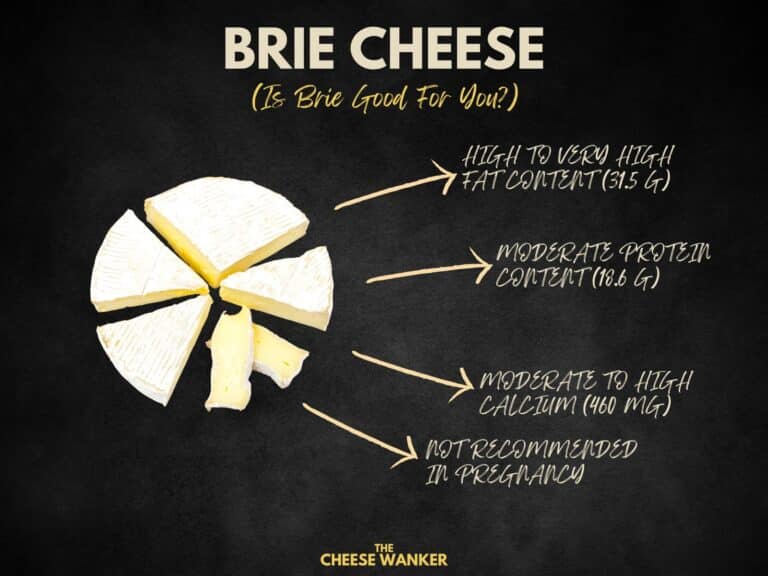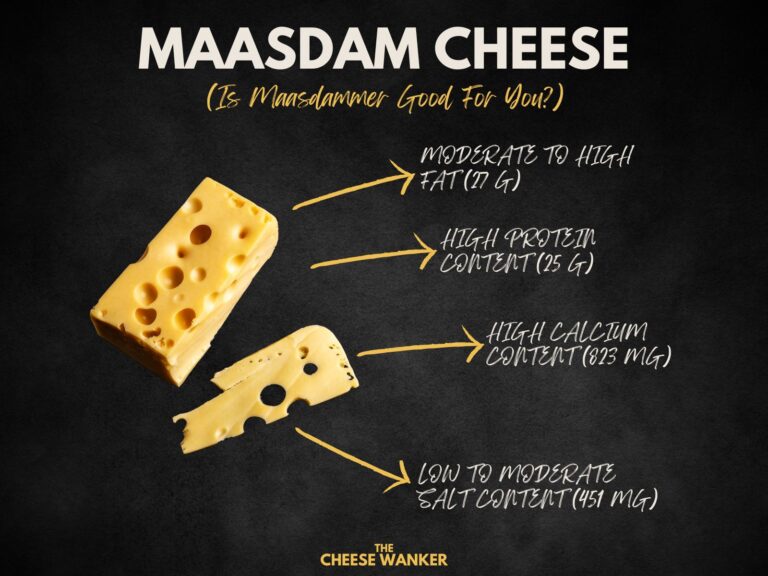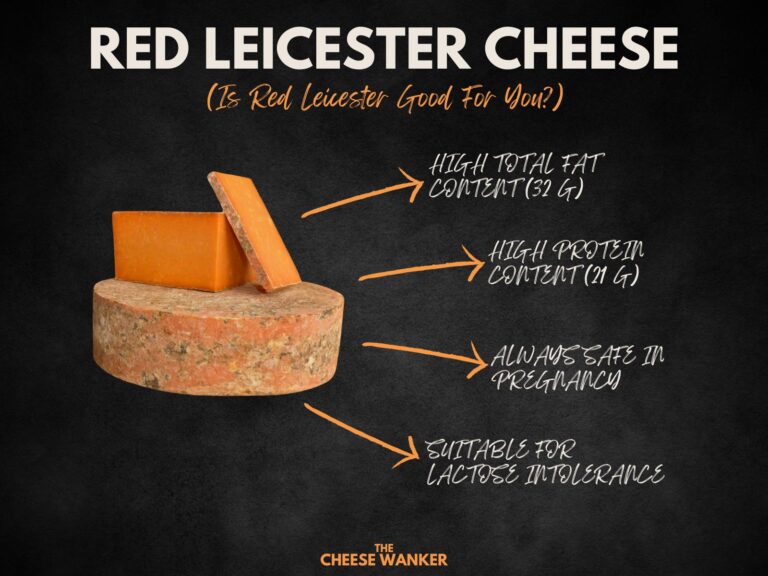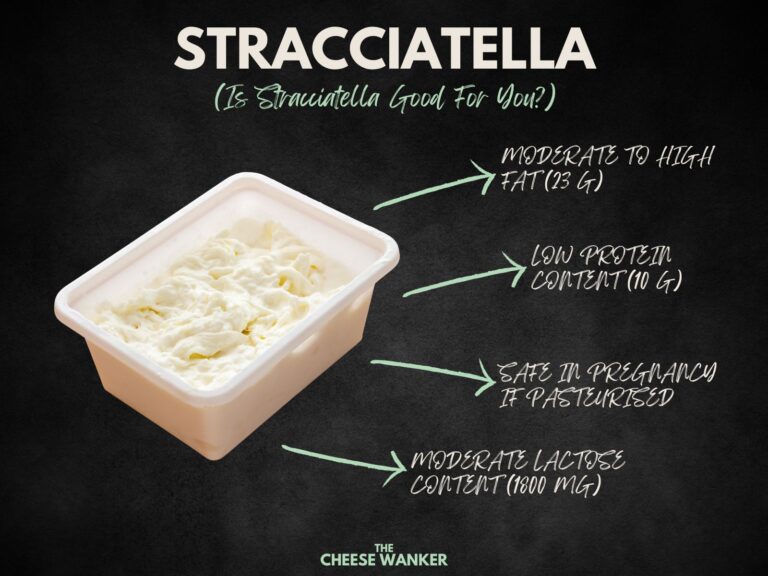Wensleydale is a historic cow milk cheese that originates from Wensleydale, North Yorkshire. Before Wallace & Gromit made it a pop culture phenomenon, Wensleydale was a monastic cheese with a coloured history dating back to 1150. Presently, it comes in a number of different flavours. Read on to discover the nutrition facts for Wensleydale & Cranberries Cheese, their most popular variant.
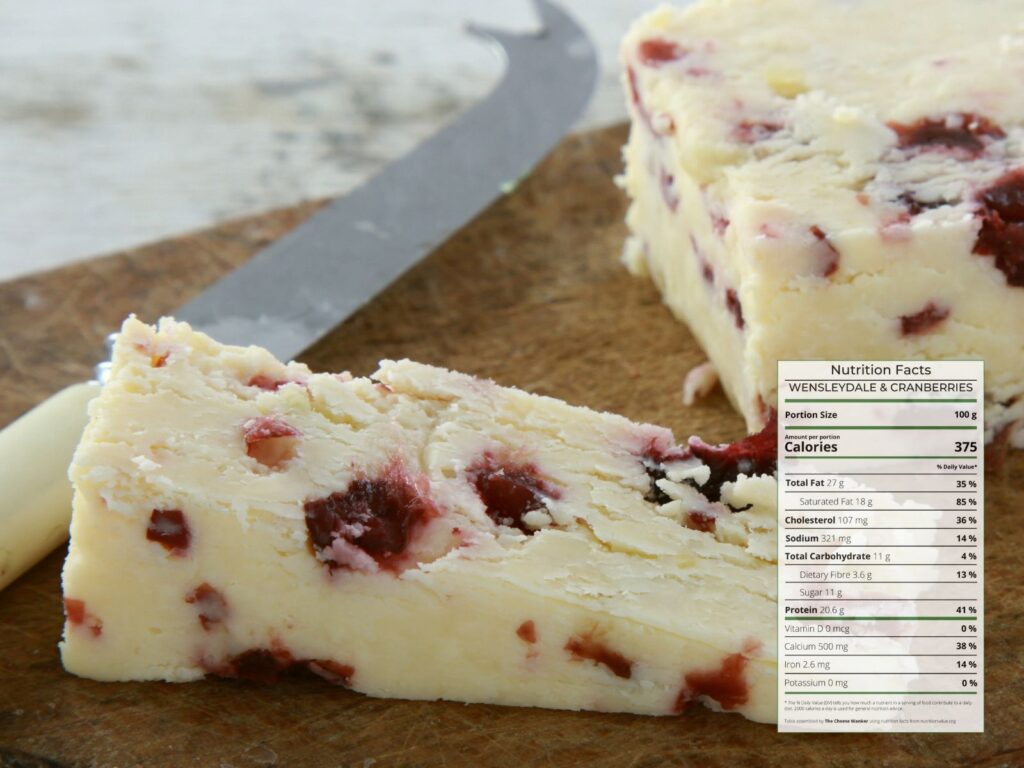
SEE ALSO: Nutrition facts for popular world cheeses in The Cheese Wanker’s index →
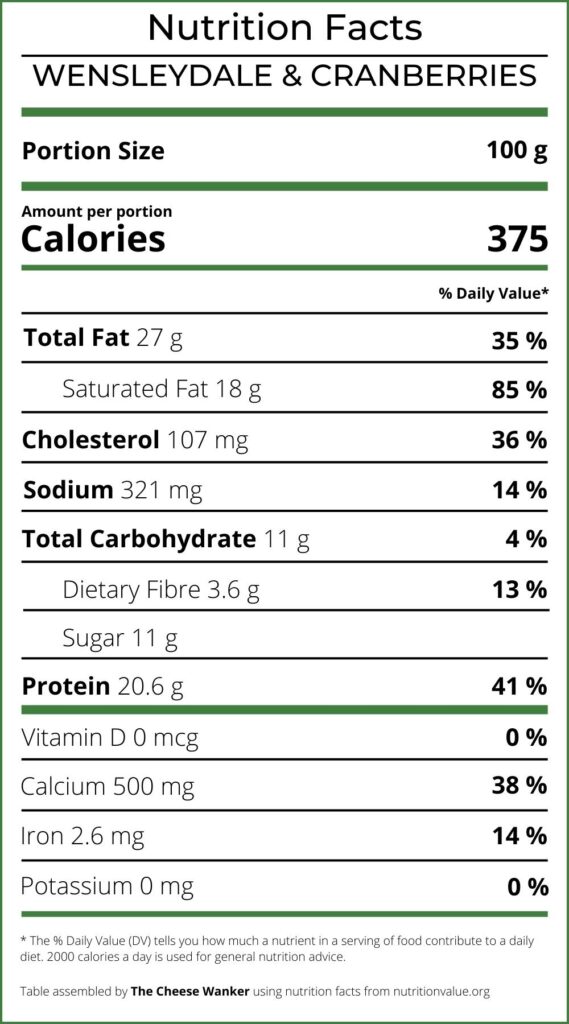
Country of origin
United Kingdom
Type of Cheese
Milk
Cow
Examples
Wensleydale Creamery Original Wensleydale & Cranberries, Somerdale Wensleydale, Thomas Dux Yorkshire Wensleydale
Safe
Lactose Intolerance, Pregnancy
Avoid
Milk Protein Intolerance, Keto Diet, Diabetes
Nutrition Facts Summary for Wensleydale & Cranberries Cheese
Like other pressed cooked cheeses, Wensleydale has low to no detectable levels of lactose. As a result, even the most sensitive lactose intolerant cheese lovers tends to be able to digest this flavoured British cheese comfortably.
All commercial versions of Wensleydale are made with pasteurised cow’s milk. This fact, combined with its low moisture content and lack of rind, make Wensleydale safe to eat during pregnancy.
However, flavoured Wensleydales such as Cranberry, Blueberry & Apricot contain a high amount of sugar. This is largely imparted by the fruit that is added to the cheese. As a result, they are not suitable for both type I and type II diabetics. On the flip side, the plain, original Wensleydale is much lower in sugar and can be consumed by diabetics.
Finally, even though it has a high fat content, the amount of sugar in Wensleydale & Cranberries cheese makes it unsuitable for people following a ketogenic diet.
References
All the advice relating to what cheeses you can eat during pregnancy in this article is based on the recommendations by health authorities in Australia, the UK and the USA. If you are unsure about what you can or cannot eat, please consult your doctor.
Australia – FSANZ
United Kingdom – NHS
United Sates of America – FDA
